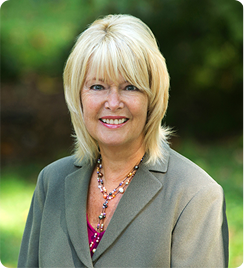
When is the right time to start planning for retirement? There are people in their 40’s who say “I’m too young to think about that” or people in their 30’s who already have a vision of the various career chapters they want to pursue until their last breath.
What actually is retirement? Why do some people love “retirement” and others feel they should have never retired? Let’s be clear. The term retirement is outdated and unrepresentative. We lack consensus on a more accurate term, but some suggestions are: Act II, Renewment, Encore, My Time, Refirement, and Next Chapter.
Historically most people retired at 65 when eligible for Social Security and Medicare benefits. Often they no longer worked for pay. Today the average age of retirement from a main career is 62 and most retirees are wanting or having to find new paid work. So retirement is not a disengagement from work, but a transition to a new way of living.
Work in retirement will become increasingly commonplace. Seventy-two percent of pre-retirees over 50 say their ideal retirement will include working. Nearly 58% of working retirees transition to a different line of work and they are 3 times as likely to start their own business than younger people. This encore work is fast becoming the fourth leg of retirement financing along with Social Security, pensions, and savings.
Due to medical advances we have gained 30 years of life expectancy in the 20th century. In 1900 Americans lived to an average age of 47. Today it is 79 and rising. A 60 year old today has a life expectancy of 81.6 years. So at 65 you may have 20+ years to use as you wish. Working on your own terms for pay or love may be part of that life. Options include: bridge jobs, part time work, contracting, entrepreneurship, volunteer/civic engagement opportunities, phased retirement, consulting, job sharing, temporary work, seasonal, or encore careers.
Comparing your current with desired life style (how you live) and your livelihood (how you work) allows you to design a life portfolio that meets your vision of the future. In fact people will plan multiple retirements or transitions as they create new opportunities for themselves.
Mark is a real estate agent who is 60. While he loves working with new clients and helping them find their dream homes, Mark has begun thinking about other ways to contribute. After 30 years in his career, Mark is eager to try something new. Through talking with his wife and friends, reading, and taking courses, Mark is designing his next chapter and beyond. He is drawing a timeline with the steps needed to transition into becoming a self employed CPA. Mark figures he can work as much as he wants and needs, but also take time off in slow periods. He likes the idea of learning new skills, becoming more flexible, and continuing to help people.
You may have dreams of your own. What everyone shares is a drive to establish an authentic lifestyle along with determining what financials are needed to support it. The reasons people seek retirement are varied. Some leave work voluntarily and others are let go. Some run from an unsatisfying career and others exit to pursue a new passion. Taking an annual review of what’s going well and what’s missing in your life allows you to become aware of your values, interests, and goals. From that knowledge you can begin a thoughtful plan toward self directed change.
“We spend the first half of our lives learning what we love, we should find a way to do those things in the second”
David Whyte
It’s vital to replace the perks of our current career: the friendships, roles, purpose, money, creativity, stimulation, identity and structure. A full life includes relationships, engagement, health, giving back, activity, learning, and passions.
Initial Action Steps:
Create and implement a financial plan that reflects your vision and values
Take action to improve your diet, exercise, sleep and stress reduction
Ask yourself whether your work is fulfilling. If not, brainstorm ways to change it
Evaluate your relationships, leisure time, and happiness. What actions will you take?
Rewire and see you on the path!






